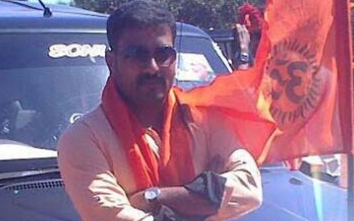Bengaluru, Jan 6: Cab aggregators are once again in news for the wrong reasons after an Ola cab driver misbehaved with a 34-year-old woman passenger and even threatened to kill her when she raised an alarm.
But what followed was worse. The woman, a software engineer, immediately called the Ola emergency number following which they asked her to check if the driver was drunk. She later pressed the emergency button on the Ola app but received a message asking her to dial 100. After the aggregator failed to help her, she said she was lucky to be saved by the public.
Reacting to the incident, an Ola spokesperson said, “We regret the unfortunate incident and have immediately terminated the driver-partner from the platform upon receiving the complaint.”
Shruthi G (name changed), an employee at a software company at Bagmane Tech Park in Mahadevapura, booked an Ola cab after her work in the evening of January 3. She booked pick-up stops at two locations as she had to pick her four-year-old daughter from the day-care centre, which is 2 km away from her house.
However, around 6.22 pm, when the cab reached Malleshpalya near Kids Castle, the driver did not stop the vehicle. He asked her to get down at the last drop location. She told him to stop and tried to open the doors but he locked the doors, insisting that she sit in the car. When she resisted, he held her hands and abused her; he even threatened to kill her if she raised an alarm.
The victim said she pressed the emergency button on the app twice but only got a message advising her to call the police.
When she called the Ola emergency number, the person at the other end asked about her condition and to check whether the driver was drunk. They called back after one-and-a-half hours when she was filing a complaint at the police station.
“Ola did not make any efforts to reach out to the police or do anything to track my location and help me in that situation,” she said.
The victim called 100 and the staffer at the control room asked her which area she was in. Since she was familiar with the area, Shruthi was able to give her location.
“First they told me that the area comes under Baiyappanahalli. Later, they said it comes under HAL. Finally, they figured out the location. It took 20 minutes for the police to reach the spot,” she said.
What saved Shruti was her sheer instinct and luck. Alone in the cab, she started raising an alarm. Luckily, commuters in the other vehicles next to the cab noticed her screaming for help and stopped the driver.
“If this is the kind of security Ola provides its customer, it is very questionable,” she said. “If we have to really call the police during an emergency then why they put out the number and emergency button, it’s a waste of time during that crucial situation. If they directly told us to dial 100 during an emergency, it will save time. Lakhs of commuters take Ola cabs thinking it is safe but they have no mechanism to check their drivers and track their customers in danger.”
Baiyappanahalli police said the accused Bhimashankar Malged was arrested and remanded in judicial custody following the complaint.
 Santosh Poojary, a local Bajrang Dal leader, caught red-handed when he was blackmailing a resident of Puthige in Moodbidri on Saturday.
Santosh Poojary, a local Bajrang Dal leader, caught red-handed when he was blackmailing a resident of Puthige in Moodbidri on Saturday.



Comments
They are giving training , gov need to take action
bec are intention is this kill someone and loot them ,
need to give proper treatment to him
Add new comment